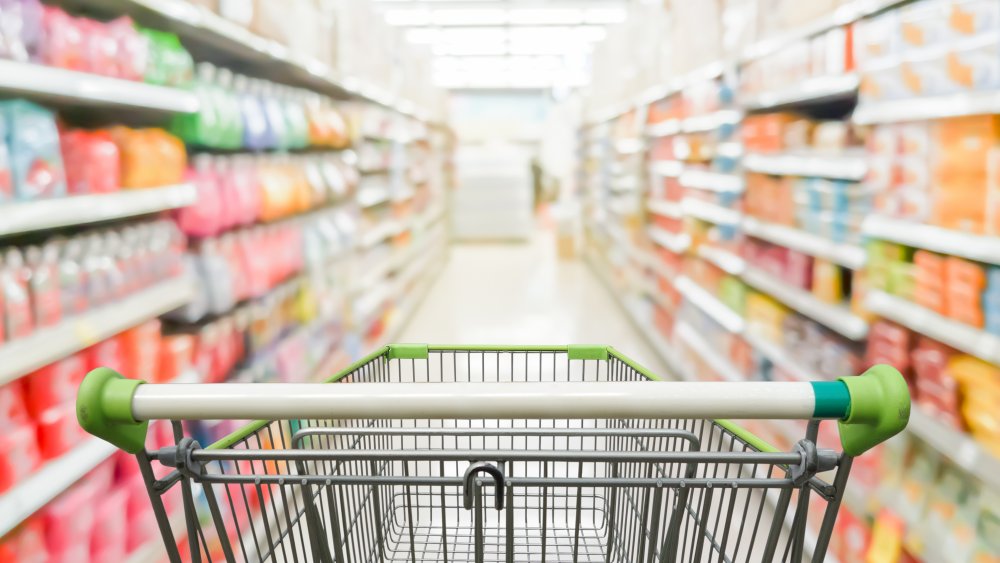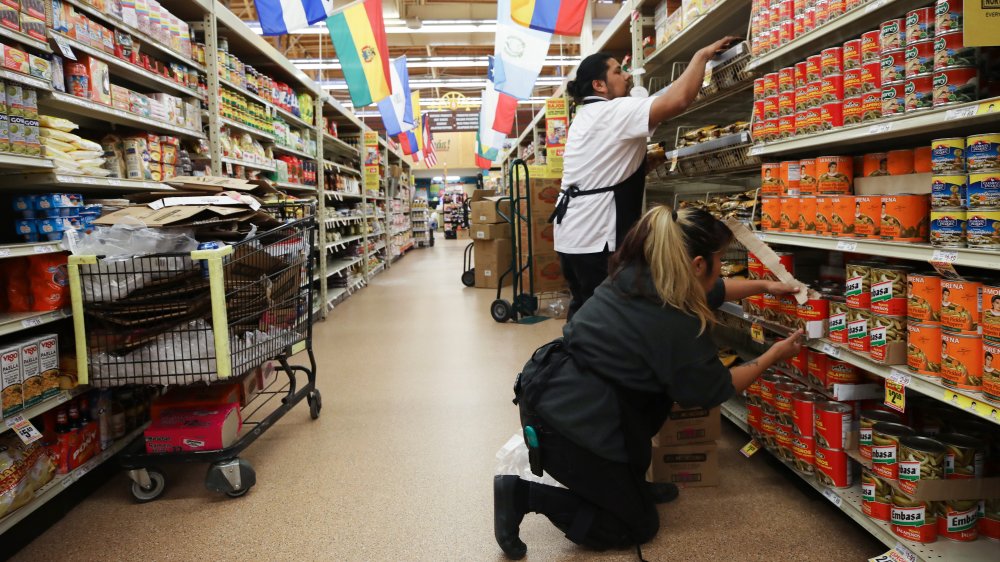The Real Reason Some Grocery Stores Are Going 'Dark'
Dark grocery stores are not exactly a new thing, but because of the novel coronavirus, more regular grocery stores are turning into "dark" grocery stores. If you're not familiar with the term, a "dark" grocery store is one that does not allow normal customers inside its doors to shop the aisles (via The Kitchn).
These grocery stores are solely to fill online orders for pick-up and delivery. The windows are typically covered at these normal grocery-stores-turned-fulfillment-centers, but some chains are starting to experiment with micro-fulfillment centers (via The Kitchn).
While this concept emerged prior to the novel coronavirus, the pandemic has forced more and more people to do their grocery shopping online. The sudden increase in demand for delivery and pick-up groceries has caused some chains to make select regular grocery stores "dark." Even with a few more "dark" store locations, chains like Whole Foods are still having trouble keeping up with filling orders (via Delish).
'Dark' grocery stores are preparing for more online orders
So far, the temporary changes from regular grocery stores into "dark" fulfillment centers have been reported in New York and California, though others may pop up in different cities and states. In addition to Whole Foods, Kroger, Stop & Shop, and Giant Eagle have all announced some stores are temporarily or permanently "dark" locations now.
Brittain Ladd, a consultant to grocery stores like Kroger and other retailers explained that the novel coronavirus pandemic is "unlike anything the industry has ever seen" in a reported piece by The Washington Post. "Grocery retailers are saying, 'How quickly can we open dark stores and automate as much as this as possible, before the virus gets worse," said Ladd.
Naturally, "dark" grocery stores are highly appealing to both retailers and customers during pandemic times and under social distancing orders. It allows people to stay safer by keeping out of crowded aisles. The concept also allows grocery staff to keep shelves more efficiently stocked in stores dedicated to online shopping and delivery. In uncertain times, it sounds as though the trend will only grow from this point.

